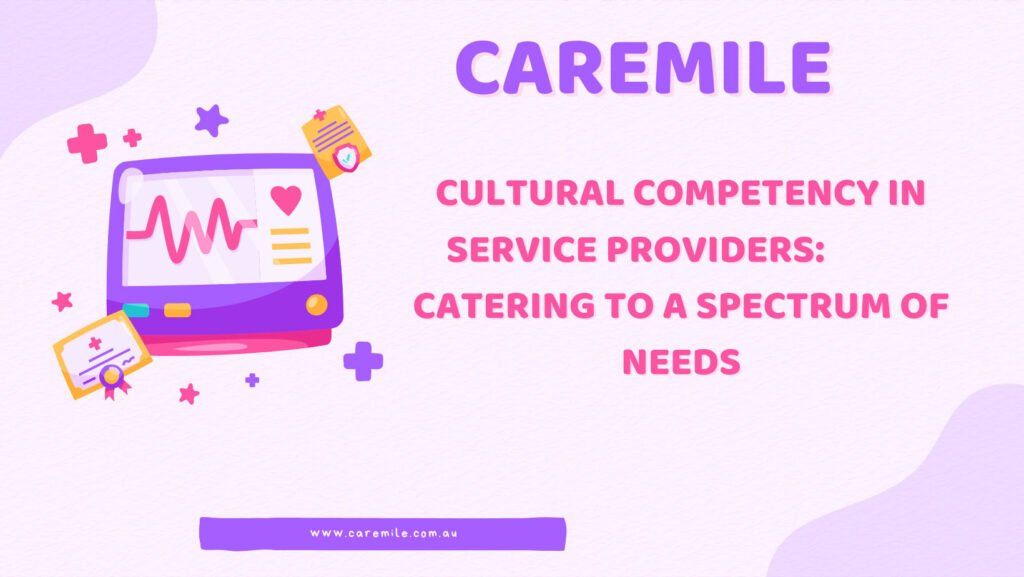In an increasingly diverse society, the capacity for cultural competency within National Disability Insurance Scheme providers is of paramount importance. providers need to be culturally aware to meet the diverse needs of their clients effectively. This article will delve into the concept of cultural competency, its significance in the context of providers, and the challenges they may encounter in striving for culturally competent care.
What is Cultural Competency?
Cultural competency is a critical set of skills that enable individuals and organizations to interact effectively with people of various cultural backgrounds. It comprises the understanding, respect, and acknowledgment of cultural differences and similarities within, among, and between groups. In the healthcare sector, cultural competence implies the ability of providers to deliver services that meet the social, cultural, and linguistic needs of their patients. For instance, a culturally competent health professional can understand and respect the health beliefs, practices, and needs of different patient populations.

Cross-cultural competency, on the other hand, refers to the ability to function effectively in different cultural contexts, including nationality, ethnicity, and gender. Meanwhile, intercultural competence signifies the ability to communicate effectively and appropriately when dealing with people from different cultures. This involves the right mix of knowledge, skills, attitudes, and behaviors that foster positive interactions in multicultural environments.
The Role of Providers
providers have a pivotal role to play in enhancing cultural competency. Their service reaches a diverse array of individuals with different cultural backgrounds, and their competency can significantly impact the quality of care these individuals receive. To become more culturally competent, providers must strive to provide culturally appropriate care that respects and acknowledges the cultural differences and values of their clients. This includes understanding cultural nuances, beliefs, and traditions that may influence the way clients perceive and interact with the healthcare system.
Accessibility is another crucial aspect providers must focus on to enhance cultural competency. This involves ensuring that their services are flexible and adaptable to meet the varying cultural needs of their clients. One practice that exemplifies this is Caremile, which has established a reputation for its cultural competence. They ensure their staff are trained in cultural awareness, enabling them to deliver culturally sensitive care while also involving community leaders and families in the care process. This not only fosters a caring and supportive environment but also promotes trust and understanding between the providers and the clients.
Challenges to Cultural Competency
Despite the evident importance, there are several challenges that providers may face in developing and implementing cultural competency. One significant challenge is the diversity of cultures in itself. Each culture has its unique beliefs, customs, and attitudes toward disability, healthcare, and support services. This means that even within the same cultural group, the needs and expectations can vary significantly. This puts a lot of pressure on providers to maintain an updated understanding of diverse cultures and their nuances.
The key to overcoming these challenges lies in the role of social workers, who are often the bridge between providers and the community. Social workers have the power to increase cultural competence by being knowledgeable about different cultures, and by fostering an environment of respect and understanding. However, achieving this may require substantial resources and continuous training. Furthermore, organizations must adopt comprehensive strategies to promote cultural competence among their staff, including diversity and inclusion training, ongoing cultural audits, and creating a culturally safe environment. All these steps demand commitment and investment from the organization, which may be challenging but ultimately necessary for effective service delivery.
Conclusion
In conclusion, cultural competency is an essential aspect of the services provided by providers. The ability to understand, communicate with, and effectively interact with people across cultures makes a significant difference in delivering care that is both effective and respectful. Culturally aware providers can cater to the distinct and diverse needs of all participants, thereby fostering an environment of inclusivity and equality.

The benefits of enhancing cultural competency among providers are multi-fold. It not only increases the quality of care but also promotes social justice and equity. In addition, it ensures the accessibility of culturally appropriate healthcare and encourages a more personalized approach to care. Therefore, it is of paramount importance to continuously strive for increased cultural competency, overcoming any challenges along the way and leveraging the key role of social workers in creating a more culturally sensitive healthcare system.







